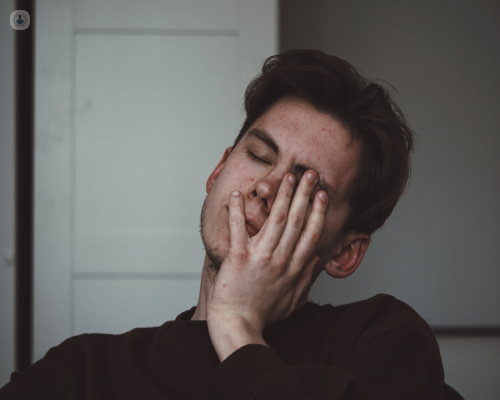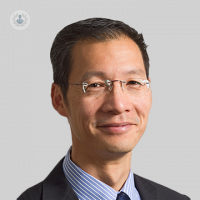Neurological conditions: Common symptoms
Written by:Diseases of the central (brain and spinal cord) or peripheral (nerve roots, nerve endings, nerve-muscle junctions) nervous system can cause a variety of symptoms from memory loss to weakness and numbness in the hands and feet.
Highly-qualified consultant neurologist Dr Dennis Chan is on hand to tell us about some of the most common neurological symptoms and their likely causes and effects.

How are neurological conditions diagnosed?
First, patients are thoroughly assessed through detailed discussion and recording of symptoms and then, neurological examination. These initial consultations usually last around 40 minutes (longer if memory testing is needed) and in some cases, a second appointment may be arranged so that test results, treatments and future management can be discussed.
Each neurological condition presents itself differently depending on the person, which determines the treatment option chosen.
A patient’s medical history is the most important part of neurological diagnosis, as it helps neurologists answer two key diagnosis questions; “Where in the nervous system is the problem?” then, “What is the nature of the problem?”. To clarify these, investigations such as scanning (MRI or CT) and electrical studies of nerve and muscle function may be employed.
What are some typical neurological symptoms?
Typical neurological symptoms include:
- Headache and facial pain - Headaches can occur due to migraine, muscle tension, cluster headache, high pressure in the brain, medication overuse, tumours and cysts. Some typical causes of facial pain include sinusitis, trigeminal neuralgia and temporomandibular joint dysfunction.
- Numbness/tingling in hands and feet – This can be caused by damage to the nerve endings, which may occur with ageing, diabetes mellitus, high alcohol intake and vitamin deficiency. It can also be a sign of trapping of nerve roots within the spinal column and, on occasion, multiple sclerosis.
- Movement/Balance issues – Movement and balance problems can arise from a multitude of conditions including problems with the inner ear, damage to the spinal cord, blood vessel blockage within the brain, or neurodegenerative conditions like Parkinson’s disease.
- Numbness and/or weakness in arms and legs – This can occur after strokes, spinal problems, peripheral nerve problems like carpal tunnel syndrome or damage to the muscles, or nerve-muscle junction disorders such as myasthenia gravis.
- Fitting and fainting – These could represent epileptic seizures or problems with heart function or blood pressure. Complete losses of consciousness can also be associated with neurological problems.
- Memory problems – while memory decline occurs with normal ageing, their presence may also indicate the onset of Alzheimer’s disease or damage to blood vessels within the brain (vascular disease).
Dr Chan is a vastly experienced consultant neurologist in Horley, Hove and Caterham. If you think you may need to be assessed for a neurological condition, you can visit his Top Doctors profile and request an appointment.


